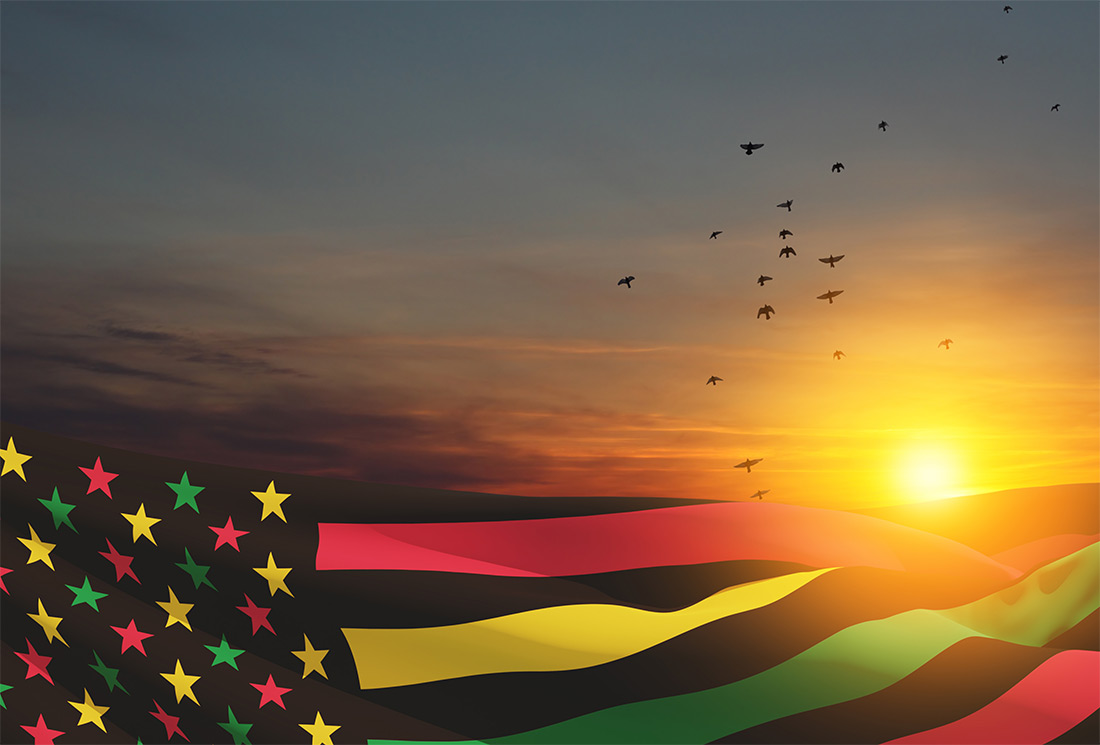by Rahshaana Green

When I think of summer, I think of Juneteenth. As a young girl growing up in Houston, TX, I remember it fondly as part of the festivities of summer. Like all summertime holidays, it felt like an extended celebration of the break from school and a celebration of long days waiting to be filled with joyful activities. The smell of barbecue, the sound of upbeat music that made you want to dance — it was a time to gather with friends and family, to eat great food, play games, laugh and enjoy the feeling of togetherness that deepened in the warmth of the sun. I always knew it was “our” holiday. As a Black native Texan, I recall understanding that it was a celebration of Black independence and freedom, and my heart always swelled at the opportunity to have a day to revel in that…. I can’t quite remember how old I was when I learned what Juneteenth actually represented.
Many enslaved and free African Americans waited with bated breath as The Emancipation Proclamation was signed by Abraham Lincoln on January 1, 1863, declaring all enslaved people in Confederate States legally free. And while there was a near collective sigh of relief and celebration amongst Black people, this was not to be experienced by the slaves in the state of Texas, which was still under Confederate control and unwilling to change so expeditiously. They chose to not share this information and waited for another two years when the 13th Amendment passed to force their hands. Freedom finally came to Texas on June 19, 1865 (more than 2 years later), when some 2,000 Union troops arrived in Galveston Bay, Texas announcing that the more than 250,000 enslaved black people in the state, were free by executive decree. This day came to be known as “Juneteenth” by the newly freed people in Texas.
When Juneteenth became a national holiday, I was so moved that I cried. This holiday that was so precious to me was finally being recognized nationally and coming to the awareness of more Americans, after the tragic murder of George Floyd inspired curiosity and learning about the inequities in our society. As moved as I still am, I feel it’s important to understand that this day is not only about the freedom of Black Americans from slavery. It’s also about the power of communication and the harm that can result when it is compromised, controlled, and withheld.
What I’ve learned in my contemplative study and practice is that we are stronger, healthier, and happier when we are connected and in community with others. This thriving we experience is only made stronger with diverse views, experiences, and opinions that invite us to challenge our perceptions and expand our horizons. Compassionate communication is connective. It helps to build bridges instead of walls that keep us apart.
If you haven’t before, I hope you choose to honor this day in a way that celebrates bridging divides, open and honest communication, and the joy it is to have the freedom to bask in the sun while breaking bread with those closest to you.
Editor’s note: Rahshaana Green is Co-Director of the Embodied Psychosocial Change track within Nalanda Institute’s Contemplative Psychotherapy Program. This track integrates embodied contemplative science and practice with social work, decolonizing education, social justice work, community organizing, non-profit and humanitarian aid work, climate justice and political activism.
Learn more about this healing and transformative program during our free Open House on June 30th.
